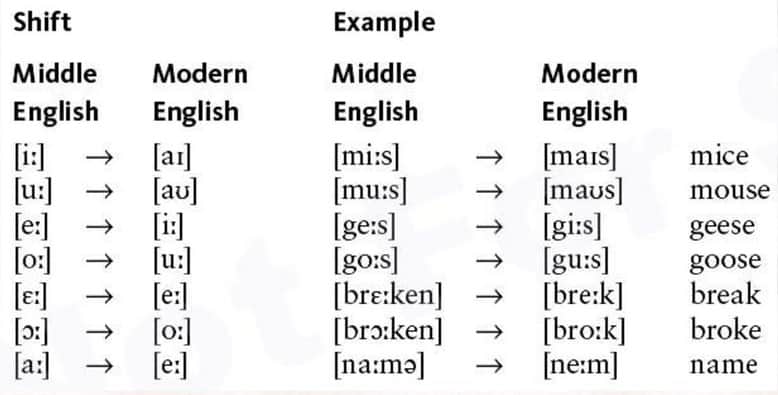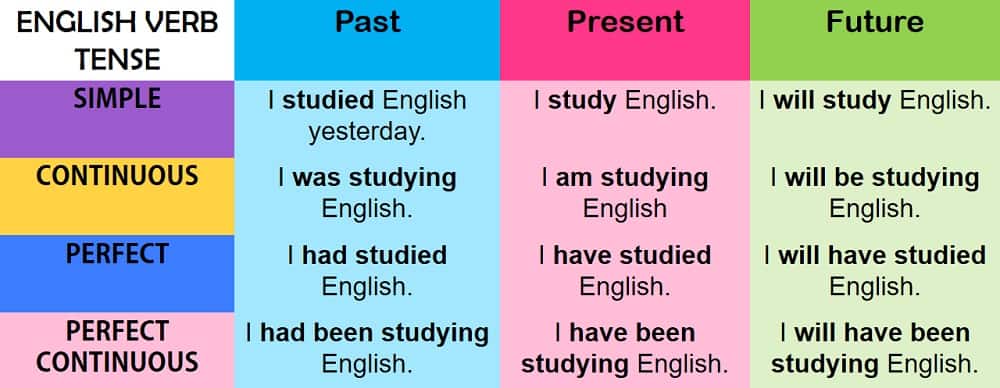Is English hard to learn? So you’ve been wondering what language should you learn? and decided to learn English. But upon starting, you realize that it isn’t as easy as it seems. Don’t worry, you’re not alone, many people share this feeling.
English has many challenging areas, that even native speakers have trouble with. From different accents to weird idioms and confusing tenses. But English is in no way impossible to learn and master. This article will give you a comprehensive outline of how to learn English and master all the challenges the language poses.
What Makes English So Difficult?
English is one of the most difficult languages to learn, especially when compared to languages like French or Spanish. Fortunately, we’ll be looking at some challenging aspects of the English language and how to master them.
1. Accents
English is spoken as a native language in many countries. These countries all have different accents. An accent refers to the difference in word pronunciation around the world.
As a native speaker, even I have difficulty understanding the different accents. In British English you might hear the greeting “good day” and in Australian English, you might hear “G’day”. It’s the same word, but due to the different accents, it sounds different and is pronounced differently.
With all these different English accents and word pronunciations, it can be quite daunting to figure out which English is the “right” one. But lucky for you, they are all accepted.
Here’s a video to show the difference between American, British, and Australian English accents:
2. Dialects
Have you ever tried to copy a British accent? Chances are the accent you are trying to copy is what’s known as Standard English – or The Queen’s English. It’s called this because hardly anyone, aside from the Queen speaks this way.
A dialect is a variety of a language that differs from the standard language. Dialect also refers to a whole group of language features including, pronunciation, vocabulary differences, grammar, and how the language gets used.
The British Isles alone consists of more than 30 regional accents and dialects, each with a unique sound to it. This can make English sound like a scary language if you think that there are more than 30 different ways to speak and use the language! But that’s also what makes it fun, you get to experiment with so many different dialects and accents.
Below is a video illustrating some of the regional accents and dialects around the UK:
3. Confusing Spelling
Another answer to the question “is English hard to learn?”, is the confusing spelling of certain words. By hearing the words you think to yourself “ah, that can’t be too hard to spell” … But then you see the way it’s spelled, and it is hard!
Words like, through, tough, though, throughout, thorough, and thought. These words confuse even native speakers. Because they sound so alike, their spelling closely resembles each other, yet they mean completely different things. When I write these words, I check my spelling at least three times, and even then I sometimes doubt that I’ve spelled them correctly.
English spelling is one of the most difficult and daunting aspects of the language, but with enough practice, you will be able to spell these words and many more with the confidence of native speakers.
4. Great Vowel Shift
The Great Vowel Shift (GVS) was a series of systemic changes in the pronunciation of vowels that occurred in England, during the fifteenth to eighteenth centuries. This shift consists mainly of the raising of all long vowel sounds. This means that vowels that used to be pronounced in one place in the mouth, now shifted and were pronounced in a different, higher place in the mouth.
Many people have argued about the specific time during which the shift took place, and what caused it. But all we know is that the Great Vowel Shift had a profound effect on English pronunciation and spelling.
The major changes that resulted from the Great Vowel Shift were that the pronunciation of “i” and “u” changed to either “ǝi” and “ǝu”, “e” and “o” were raised to “i” and “u” respectively. Word examples of these changes include the pronunciation of “i” in the word bite, which was originally pronounced as /i:/ and became /ai/. The double “e” in the word meet was initially pronounced as /e:/ but later became /i:/.

5. Pronunciation Differences
For English pronunciation, context, and parts of speech matter a great deal. There are many words with the exact same spelling, but their pronunciation differs quite a bit. It is important to note that words with the same spelling, have a noun and a verb form in most cases. An exception to this are the words read and read, being pronounced as “reed” and “red”. These are both in the verb form, the first being in the present tense, and the second being in the past tense.
These pronunciation differences can make it quite difficult for non-native speakers to know when to use which pronunciation. Below is a list of words with the same spelling, but different pronunciations. Note that in the noun form, we stress the first syllable, and in the verb form, we stress the second syllable.
| Word Example | Noun Form Pronunciation | Verb Form Pronunciation |
| Present | RPE-zent | pre-ZENT |
| Record | RE-cord | re-CORD |
| Produce | PRO-duce | pro-DUCE |
6. Many Phrasal Verbs
Phrasal verbs are idiomatic phrases consisting of a verb and a particle, or sometimes two particles. Phrasal verbs are also known as multi-word verbs because these verbs are accompanied by other elements like adverbs or prepositions.
In terms of word order there are two types of phrasal verbs, separable and inseparable:
A. Separable
With separable phrasal verbs, the verb and the particle can be apart or together.
- They’ve called the meeting off
- They’ve called off the meeting
But separable phrasal verbs must be separated when you use a personal pronoun.
- They’ve called it off
B. Inseparable
These phrasal verbs cannot be separated, not even by personal pronouns.
- Who looks after the bay when you’re here?
- Who looks after her when you’re here
There are many more phrasal verbs that strike non-native speakers as strange. Like, bring up (to start talking about a situation), come across (to find something by chance), and look into (investigate). But no matter how strange these phrasal verbs might seem, the more you hear them being used, the more you’ll get used to them.
7. Large Vocabulary

English is known as the language with the largest vocabulary in the world, with over 100 000 words. This is a massive amount of words to learn. But luckily you don’t have to learn them all. I doubt any native speaker knows every single one of the words in the English vocabulary, I know I don’t.
The thing that makes vocabulary hard to learn, is that, unlike grammar, vocabulary isn’t governed by a set of rules. This means that there is no limit to the words that can be included in the vocabulary of the English language. But with a few easy tips listed below, you are sure to expand your vocabulary by leaps and bounds.
- Read books, newspapers, and articles to learn new words
- Keep a dictionary at hand, to learn the meaning and pronunciation of new words
- Make a list of new words, trying to recall their meaning and pronunciation
- Practice using new words, through speaking and writing
8. Different Roots of Words
Upon closer examination of the English language, we realize that many of its words are similar to those in other languages like German or French. That’s because about 26% of English words are Germanic in origin, 30% are French in origin and another 30% are Latin in origin.
This also means that native French, German or Dutch speakers will find English quite easy to learn because so many English words share their roots in those languages. But people who speak Japanese, Korean or Chinese will find English very challenging because English isn’t closely related to these languages. This is why when asked “is English hard to learn?” speakers of different native languages will answer differently.
No matter what your native language is, or whether it’s related or similar to English, anyone can learn English. It might take some people longer and may pose more challenges, but with practice and dedication, you can learn and master English.
9. Irregular Verbs
Regular verbs are verbs whose conjugation follows the typical pattern. Whereas irregular verbs don’t follow the typical pattern of conjugation. Most verbs have a past tense and past participle tense, that adds -ed to the end of the words, like: worked, played, and listened. But now let’s look at some irregular verbs:
| Base Form | Past Tense | Past Participle Tense |
| eat | ate | eaten |
| see | saw | seen |
| send | sent | sent |
| drive | drove | driven |
These irregular verbs are definitely confusing, not even native speakers know why these words don’t follow the usual rules of conjugation. But if you study these exceptions to the rules, you’ll be well on your way to mastering the English language.
10. Irregular Plural Changes
Most nouns are changed into the plural form by simply adding an -s or -es to the end of the word, like apples, bosses, pens, and bushes. But then we have a group of nouns that don’t follow this rule, these are called irregular plural nouns, or just irregular nouns. Again nobody knows why this group decided to not follow the rules, or why they are just simply allowed to not follow the rules. But below are some examples of irregular plural nouns:
As confusing, and strange as these plural nouns might seem, if you think about it, they wouldn’t really look right if you just added an -s or -es to the end of them. The more you practice English and the more you learn, these irregular plural nouns will soon become second nature to you.
| Singular | Plural |
| goose | geese |
| bacterium | bacteria |
| cactus | cacti |
| phenomenon | phenomena |
| foot | feet |
11. Weird Idioms
Not everything in life is meant to be taken literally. English is filled with metaphors, idioms, and other figurative languages that can be quite challenging for non-native speakers to grasp. When someone says “Bob’s your uncle”, don’t worry you didn’t just find out about a long-lost uncle, it just means “there you have it or “it’s done”. People usually use this idiom when concluding a set of simple instructions or when a result is reached.
The same goes for when someone says “break a leg”, they aren’t wishing ill fortune on you or someone else, it just means “good luck”. There are many more such confusing idioms in English, and any other language. But as with irregular verbs and nouns, idioms are all about memorization and practice.
12. Confusing Tenses
When it comes to learning how to speak in English, the many confusing tenses can often scare people off. With past-, present- and future simple, -continuous, -perfect, and -perfect continuous tenses it’s easy to get overwhelmed. Trying to learn, understand, and know when to use which tense can be quite difficult and can pose a great challenge to non-native speakers.
If you were to ask native speakers about tenses, very few of them would be able to tell you much about it, and they all speak fluent English. The more you practice, read and speak in English, you’ll soon start to realize that these tenses aren’t that difficult to learn and memorize.

Now we’ve looked at all the different aspects of the English language that non-native speakers find challenging. With the many phrasal verbs, weird idioms, large vocabulary, and irregular verbs and nouns, there are quite a few aspects that can be quite challenging. But English also has many aspects that make it easy to learn.
If English is a bit too challenging for you, and you’re considering learning a different language, like Spanish. But you’re wondering is Spanish hard to learn? You may find it to be even more challenging than English. But no matter what language you want to learn, and no matter how challenging a language may seem, with practice and dedication you can learn and master any language.
Now let’s move on to the easy parts of English…
But… What Makes English Easy to Learn?
As with any language, English has both easy- and hard-to-learn aspects. Now we’ll take a closer look at the aspects that make English easy to learn.
1. English has Many Loan Words
English has a very large vocabulary, so it’s not shocking to find out that not all of those words are English in origin. English has many loan words that come from many different languages around the world.
Loan words make up approximately 80% of the English language. English is composed of words from Latin, French, German, Italian, Spanish, Dutch, Japanese, Arabic, Portuguese, Russian, Chinese, Swahili, and many more. This means that if your native language is one of those English got some of its words from, you have a head start on learning the English vocabulary.
Here’s a table with a few words and their language of origin:
| Word | Language of Origin |
| rendezvous | French |
| genre | French |
| waltz | German |
| kindergarten | German |
| tsunami | Japanese |
| origami | Japanese |
| tofu | Chinese |
| typhoon | Chinese |
| guerrilla | Spanish |
| patio | Spanish |
2. Many Learning Resources
With many other languages, you have to search far and wide to find resources to help you learn the language. But English resources can be found anywhere, and almost everywhere. Movies, videos, TV shows, music, books, and articles are all in English. This means that you can find the right resources to help you learn and master English in the blink of an eye!
Aside from the above-mentioned resources, there are also many others, like English tutors all over the world that can help you learn English quickly.
3. Many English Speakers Around the World
With more than 1 million speakers worldwide, English is considered to be the most universal language. English is the default language in international business, tourism, and technology.
With the number of people who speak English, either as their native language or as a second language. You can find English speakers and learners everywhere. This means it’s quite easy for you to learn, and become fluent in English. Also, find people asking the same question as you, “is English hard to learn?” to exchange resources and ideas with.
4. No Cases Change
A grammatical case is the grammatical function of a noun or a pronoun. There are only three cases used in modern English: subjective, objective, and possessive case. In old English, these were called: nominative, accusative, and genitive case respectively.
English has largely lost its inflected case system, but personal pronouns still have these three tenses, when used in sentences. This makes it a lot easier to learn English, and get used to the way sentences are structured.
Let’s take a look at how personal pronouns are changed when using each case mentioned above:
| Subjective | Objective | Possessive |
| I | me | mine |
| you | you | yours |
| he | him | his |
| she | her | hers |
| we | us | ours |
5. No Gender

Languages like Spanish, German, Greek, and many more are considered gendered languages. This is because these languages have certain words, mostly nouns, that are divided into gender groups, and word endings differ based on which group it is in. These groups can be, masculine and feminine or masculine, feminine, and neuter. This makes learning vocabulary in these languages quite a challenge.
Lucky for you, English has no gendered nouns, this makes learning the English vocabulary, especially when it comes to nouns, a whole lot easier.
It’s Time to Hit The Books
English is an enormous language, and it might take a lot of time and effort to learn. But despite all these hard parts in the English language, there are also a few easy parts that really make the English language fun to learn. English is the most widely used language in the world, which means that by learning English you’ll unlock so many opportunities for yourself.
There is no “right way” to learn English because everyone learns differently. But there are some methods that we recommend, reading in English, listening to English songs, watching English movies or TV shows, getting an English tutor, and practicing speaking with a language buddy. Stick to these easy methods and you’ll master English in no time … as the saying goes: Bob’s your uncle. Hopefully, the information in this article has answered your question, “is English hard to learn?”.
If you are interested in learning any other languages, or you’re just curious about all the languages of the world, or any other topic really, check out AmazingTalker.
















